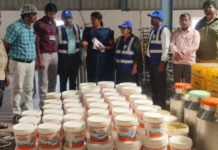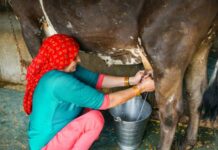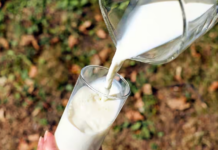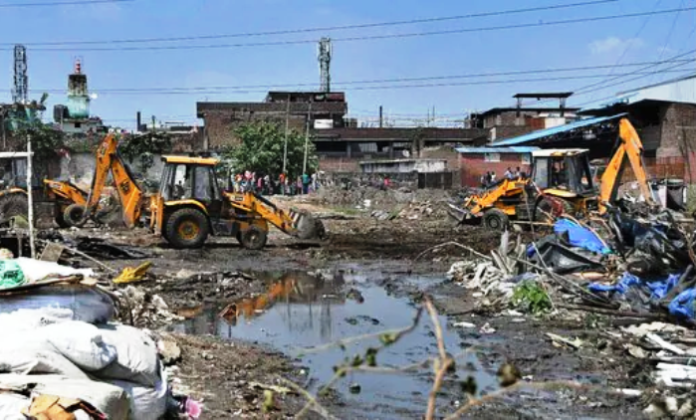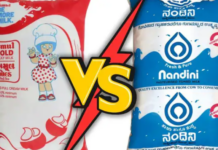New Delhi, May 11, 2024: The Jamalpur police have booked 76 persons for polluting Buddha Nullah near Tajpur Road. The action was taken after a complaint was lodged by an executive engineer from the water supply-cum-mining and geology department. Those wh
According to information, dairy owners are responsible for dumping their waste into Buddha Nullah, leading to its pollution. A survey conducted by the water supply-cum-mining and geology department at Tajpur Road revealed 76 locations, including dairy farms and other businesses, contributing to polluting the nullah.
o have been booked are dairy farm owners. The case has been filed under the Northern India Canal and Drainage Act, 1873.
Investigating officer Dilbag Singh of Jamalpur police station stated, “Following a complaint by Rajat Grover, executive engineer of the department, we conducted a survey at Tajpur Road near Buddha Nullah. We found dairy farms disposing of their wastewater into the nullah. A case has been registered against 76 persons and an investigation has commenced.”
Last month, following directives from the National Green Tribunal (NGT), the Punjab Pollution Control Board (PPCB) submitted a report on samples collected from Buddha Nullah at various locations across the district. The report revealed high levels of chemical oxygen demand (COD) and biochemical oxygen demand (BOD), rendering the water unfit for irrigation.
The report submitted by PPCB executive engineer Gurmeet Singh highlighted the presence of 300 dyeing units in the district, with approximately 265 falling within the catchment area of Buddha Nullah. This nullah originates in Koom Kalan village and flows parallel to the Sutlej river, joining it at Walipur Kalan village according to the reports published in hindustantimes.com.
Environmental activist JS Gill said, “While action has been taken against dairy owners, dyeing units responsible for polluting Buddha Nullah are still under scrutiny without any FIR or action taken against them. A few months ago, dyeing units were temporarily shut down for a couple of days, resulting in clearer water in the nullah. However, the situation remains dire as the water continues to be black with a foul smell.”
Gill also highlighted the harmful impact of electroplating units and other industries discharging chemical acid water into the nullah, further deteriorating its quality and rendering it unsuitable for irrigation and other purposes.
Rajat Grover, executive engineer of the department, said, “I have given names to the police commissioner six months ago as we have conducted the survey where we found 76 dairy owners who are disposing of their dairy waste water into the nullah and then I had recommended this letter to police commissioner to register the case against them”.




